Welcome!
This is our first Say More issue, and we’re so excited to have found a space where more women can say more things! If you’re here, it’s because you value women’s voices. So do we. That’s why in these newsletters we’re committed to not censoring them. Will we all agree with every view expressed? Doubtful. Will the women who write here always represent the views of the ALSSI podcast? Nope. That’s okay! We are all kinds, each woman walking an individual path, forging her faith one step at a time. We hope you’ll continue to join us as we glimpse the minds and hearts of each other in new ways. It’s rich community soil! If we’re willing to make room, we can all grow together.
— Susan, Cynthia
and the ALSSI team
Can I Choose to Believe?
by Cynthia Winward
I have a dead blog. It was my creative outlet
while raising kiddos. In 2016, I had already been going through what I called my ‘organizational’ church crisis for nearly five years. For whatever crazy reason, I decided I wanted to make a blog post a bit different than my usual topics about quilts, kids, and cake. (Gracious, that list! Am I a Mormon woman, or what?) Instead, I thought I would post about my current faith beliefs. So I carefully examined those beliefs and wrote them out, probably for the first time in my life. It was scary.
And then I let that list of beliefs sit in my blog drafts. For weeks. And then months. After five years of struggling in my churchy life, I knew then that whatever I published would be different in five months, and definitely in five more years. I couldn’t commit to any kind of black and white list of beliefs anymore so I never hit that publish button.
Belief is a funny thing. I used to think I could ‘white-knuckle’ my belief by just trying really hard. I’ve said before on the podcast that my belief in the church was an idol–one that I would bring out and polish, displaying proudly in talks, comments at church, around the fire at girls’ camp, etc. And once much of that was gone, I found myself scrambling how to get that belief back. Because all my life I had heard that belief was simply a choice. Phrases like these in general conferences from leaders: “Choose to believe in Jesus Christ. If you have doubts about God the Father and His Beloved Son or the validity of the Restoration or the veracity of Joseph Smith’s divine calling as a prophet, choose to believe and stay faithful.” ~Russell M. Nelson, 2021. Or this: “Choosing to believe is an important step in increasing our faith in the Savior. It has to be our choice. No one can make that choice for you.” ~Patricia P. Pinegar, 1994
Teachings like that used to make sense to me as a full believer. Just choose belief! And the way to choose belief was to read scriptures, pray, attend church, and then you’ll believe. I had assumed my entire life that my good actions were responsible for my belief. However, even as I continued those same actions, I eventually found my beliefs had simply changed—due to new information and new life experiences. What I then realized was that the above quoted talks never actually told me how to flip the switch so that belief was once again in the “on” position. In Faith After Doubt, Brian McLaren writes, “Yes, you can choose to say you believe something. But whether you actually and authentically do believe it is less choosable than it seems.”
That was me! And that is me now. I have accepted that I can not force my brain to believe something that I once did in 2016. Of course, this isn’t just a problem for Latter-day Saints. In her book Holy Envy, Barbara Brown Taylor writes about her years teaching World Religions at a university. Part of that class was taking the students on field trips to other places of worship, providing her hours of commuting with students in the van. She writes about those trips:
“Sometimes when I am eavesdropping on students in the college van, I am sobered by the questions they ask each other to determine how Christian they are:
“Do you believe in the virgin birth and the physical resurrection?”
“Do you believe the Bible is the inerrant word of God?”
“Do you believe Jesus is the only way to God?”
Few of them know that the items on their orthodoxy checklist do not date from the 1st century but from the early 20th century. When the Bible Institute of Los Angeles published a series of essays to establish the fundamentals of Christian belief, I wish the institute had spent as much time on the fundamentals of Christian practice, so that students had more to talk about than what they believe. After all these years behind the wheel of the college van, I am still waiting to hear a single student vet another’s faith by asking a different set of questions:
“How does being Christian change the way you live?”
“What’s the hardest part about loving your neighbor as yourself?”
“What is your favorite way to pray?”
I could say a lot more about what I did after many of my beliefs switched to the “off” position (ahem….that’s what our podcast is all about!), but for now I will end with this—letting go of my idol of belief has been the biggest springboard to growth. I swapped certitude for trust, knowledge for mystery, answers for wonder, creeds for kindness, and being right for being serviceable. It’s enough.
The Nothingness of my
Mother’s Mothers’ Consent
by Emily Nelson Wadley
(Don’t miss hearing this piece read by the author!)
I’m not entirely sure how I came to be toggling
between FamilySearch and a word document, searching for, finding and typing women’s names into a list. But here I am. These are the generations of my mother’s mothers who were in polygamist marriages. Polygamy has always been a “deep-breath-eyeroll-shake-head-stomach-ache” part of my religious cultural heritage. I’ve been plenty disturbed by the concept, the context, the controversy of did Joseph or didn’t he?, and certainly the hushed tones around it all. I guess I’ve just been curiouser and curiouser about the specific polygamist fruits hanging on my family tree. I’ve never looked, so I’ve never seen, and now it seems I cannot look away. I click the down arrow on each of my mother’s mothers to see the “other wives” of the men to which they were married.
My empathy is pricked by the intimacy of reading and spelling their names, their full names, their maiden names. After ninety minutes of clicking and toggling and checking and rechecking, I think I’m finished. Initially, I planned to go through my father’s mothers too, but this is starting to feel overwhelming. So, I decide at this point, I’ll just tally the numbers for my mother’s side alone. As I count all the women for each man, “4 for Chester,.. 7 for Christian…” and push the corresponding number on the calculator, I feel the watery heat of tears pooling in my eyes.
“…equals… 56.”
9 men. 56 women.
Typically, when discussing my Mormon heritage, I describe my family lines through a grandfather frame; so-and-so man had this-and-that number of wives, I come through wife number “__”. But today, 56 women are staring up at me from the calculator and I know it’s time to change the framing of my family tree. Nine of my mother’s mothers, from four different generations, shared their husbands and their lives with 47 other women.
I can’t know how each of the women in my family felt about their situation, but these statements from Joseph F. Smith, president of the Mormon Church during the Reed Smoot Hearings in 1907, rend me with sorrow.
JFSmith: The condition is that if she does not consent the Lord will destroy her, but I do not know how he will do it.
Question: Is it not true that if she refuses her consent, her husband is exempt from the law which requires her consent?
JFSmith: Yes; he is exempt from the law which requires her consent. She is commanded to consent, but if she does not, then he is exempt from the requirement.
Question: Then he is at liberty to proceed without her consent, under the law. In other words, her consent amounts to nothing?
JFSmith: It amounts to nothing but her consent.
(Proceedings 1907, HC 1:201, D&C 132).
Hearing Joseph F. Smith describe the meaning of the meaninglessness behind meaningless consent offered to women in exchange for their participation in polygamous marriages, I also hear a faint echo of what I’ve experienced in Mormonism. A choice between anything and eternal damnation is not true choice.
There is no growth, no sense of self, no filling the measure of one’s creation without true choice.
It is certainly not the same as the agency I was given by God. It is the exercise of control by men who claim authority over me. Joseph F. Smith was right, my consent amounts to nothing meaningful. There is no growth, no sense of self, no filling the measure of one’s creation without true choice.
The Mormon theology I was taught puts the ultimate value on one’s agency explaining that the Atonement of Christ protects that gift. To be an agent unto one’s self is to order, create and guide the experiences of one’s life. God used creative power to build worlds of dizzying complexity, the variety of which we have yet to comprehend. This is how I am created in God’s image; I also have the divine power of creative agency. This is the gift of the Creators to their Children, to choose the meaning of their existence.
My mother’s father’s grandfather’s grandmother, Sarah Marinda Bates, first wife of Apostle Orson Pratt, shared the only meaningful identity available to her in 19th century Mormonism with 9 other women. In 1844 Sarah exchanged her consent for her husband to be sealed to Charlotte Bishop in the Nauvoo Temple so she could have her own sealing to Orson. By 1875, Sarah had courageously made it known that her faith in the Mormon religion all but disappeared over 30 miserable years of living inside polygamy. When an Elder of the church characterized her as a “regular Satan” she responded to him, “There are only two classes of Mormon women, devils and fools.” At the bottom of the religious hierarchy, Sarah’s only choice was to rebel or comply. Under threat, her agency ceased to exist. This is not Christianity, this is coercion, manipulation, even fear mongering. After decades of sacrificing her agency on the altar of polygamy, she’d had enough and rebelled. And she received the promised condemnation from the church she once loved. (Van Wagoner, The Shaping of an Apostate)
I’ve wasted too many years trusting “it was a different time” and “society had different needs” as valid apologies for polygamy.
I’ve lived every day of my 50 years sunk deep and safe and sheltered in a 20th century enigmatic version of orthodox Mormonism. I’m just getting used to seeing “all that is, and all that ever was” without the prescription lens of patriarchy. I’ve wasted too many years trusting “it was a different time” and “society had different needs” as valid apologies for polygamy. Accepting the historical privilege and responsibility that comes from living in this era, this decade, this 2023, I can finally see what some women could not, and others still will not. I can see the injustice, the oppression, the man taking from the woman what only her Creator could give—her divine agency.
These are the names of my mother’s mothers and the women with whom they shared their husbands, their identity, their shame, their prosperity and their poverty.
Mary Angelina Packer
Agnes Melissa Loveland
Sarah Maria Dickson
Pamela Elizabeth Barlow
Angelina Avilda Champlin
Sarah Ewell
Maria Laverna Champlin
Martha Jane Packer
Christiana Petrina Sundby
Helena Marie Lindquist
Mary Flint
Ann Mariah Brown
Margaretta Unwin Clark
Emma Summers
Henrietta Caroline Williams
Ann Clark
Cordelia Calista Morley
Emeline Sally Whiting
Jemima Losee
Lydia Margaret Losee
Mary Ann Darrow
Emma Sophia Pedersen
Lucy Gunn
Lenora Abigail Snow
Hannah Blakesley Finch
Hannah Knight Libby
Eleanor Mills
Harriet Lucinda Cox
Betsy Bradford
Hanna Sibley
Ann Dayer
Sarah Scott
Hannah Sibley
Woman of Unknown Name
Janette Scott Ure
MaryAnn Ferguson Price
Janet Scott
Agnes Davis
Elizabeth Jones
Sarah Marinda Bates
Charlotte Bishop
Adelia Ann Bishop
Mary Ann Merrill
Sarah Louisa Chandler
Marian Ross
Sarah Louisa Lewis
Juliaette Ann Phelps
Margaret Graham
Eliza Crooks
Ane Marie Christensdatter
Christine Maria Hedvig Bruun
Ane Marie Alesdatter
Anne Marie Iversdatter
Mariane Lovise Loutrup
Ane Kirstine Mylendorf
Maria Kerstine Bruun
I grew up in a military family, living in Texas, Maryland, Utah, Germany, and California, where I graduated from high school. I got a degree from the University of Utah in Vocal Music Education and while singing in choir there, fell in love with a baritone from Bountiful. We married and raised our four children also in Bountiful. I taught choir and theater in public schools for 25 years and have worked time to time for the LDS church as an actor, director, musical director and writer. I conducted a handful of choirs for LDS General Conferences, acted in a few LDS-centric films with TC Christensen like 17 Miracles, Cokeville Miracle and Love, Kennedy, and directed productions like Ragtime, The Scarlet Pimpernel and Matilda at Centerpoint Theater. I love re-arranging furniture, watching movies and football, walking with my dog, Indiana, and singing my guts out with my kids and Coldplay. — Emily
A Woman of Sorrowful Spirit
by Lisa Phair Fluckiger
Sunday morning choir,
United in music,
Except me —
Stunned
Crippled by my own life.
Mouthing the words
Alone in the oblivious crowd
Week after week
For months
My pale life plastered against theirs
Comparison the thief
Complaint and grief
No relief
Regret on repeat.
My heart pours
I hate this place
I hate this choir
I hate this song
I hate this church
Can fury be prayer?
Where is my worthy portion?
Suddenly Heaven speaks
and I cannot shut it out
You have no idea
how much
I love you.
Tenderness pours
Anger pauses
Breath catches
Cycle breaks
Bitterness melts.
I am drowning in light and love.
My dear choir, perfectly aware,
Turns as I weep,
And then with kindness, keep
Singing.
I have often relied on paper and pen to clarify my thoughts and settle my heart. This poem describes the first crisis moment in my faith life, when I had to release what I thought was true and receive love instead. I trained as a chemist and teacher (BYU ‘91) and currently help my husband run a family bakery. I also enjoy reading, writing, and running with my dogs. — Lisa
The Mormon Boy Crucible:
A Mother’s Lament
by Mer Monson
In yet another summer of endless missionary farewells
and homecomings, I’m grateful for this space to express, out loud, a storm that’s moving through me.
Even in the face of ever-evolving deconstruction and nuance, my hubby and I have fully engaged with The Church of Jesus Christ of Latter-day Saints our entire lives. We have both served as full-time missionaries and in nearly every other calling over the past 35 years, including raising our three boys from all the way on the inside.
Five years ago, my oldest son, after nine months of internal wrestling, chose not to serve a mission. Even with the unconditional space we tried to create for him, it took him a long time to say no to something he did not feel was right for him. At one point in the struggle he said, “Mom, I just wanna be a good guy.” His words broke my heart. I have felt peaceful about his decision from the moment he made it.
Two years ago my second son came to us a few months before High School graduation and said, point blank, “I’m out. I don’t get anything out of church, they constantly ask me to do things that stress me out, and it’s not working for me.” This kid only draws a line when he means it. He stopped going to seminary and church and has never looked back.
My youngest son, now 18, is drawn to the huge opportunity for growth and service but is not sure he can fully get behind everything he’ll be expected to teach as a missionary. I get it, and I trust him completely to figure it out as he starts college this fall.
As I watch my third son navigate this social and cultural crucible, I feel more torn than ever. Of course I want him to fall more in love with God. Of course I want him to dive into another world, a new adventure, a rich recipe for so much learning and growth. And of course I want him to unwrap the gifts of loving and lifting so many flavors of people.
And…I worry he will miss the breadth of God’s love amidst a cacophony of beliefs, laws and rules, or get lost in corralling people to heaven and miss the astounding presence of God already here. And I loathe the thought of him being acutely pressured to see, feel and speak about himself, God, and other people as though there is only one exact way to be good, to thrive, to embody the essence of the divine.
I’ve felt everything from embarrassment to relief to pungent grief watching my sons’ friends, cousins and classmates leave and return home from missions over the past five years. I wonder if and how I went wrong. I so love that my boys have followed their own knowing even in the face of a big social cost, and I feel relief at not being pulled further into a church I already struggle to make peace with. And…I mourn the loss of belonging, friends, and a well-paved path for them overflowing with purpose and meaning. I feel burned, having given my whole life to a people and an organization that couldn’t step up, love and nurture my kids in an expansive enough way for them to receive its gifts. It cuts deep to be steeped in a faith where my beloved, intelligent, huge-hearted sons no longer belong.
Last week, in yet another round of the “Did we mess up?” conversation with my hubby, he said something that flipped my heart. “What if God’s just been turning us into the parents our boys needed us to be?” Ahhh, yes. I’m soooo grateful for all the internal shifting that’s helped me love and enjoy my sons without any church-shaped wedges between us. It is so wild to feel more peace, fun, love and friendship with my own kids than ever before and yet feel isolated, second class, deficient and off-track the moment I step beyond our sanctuary into circles of extended family, friends and church. To be honest, I feel a little insane.
“What if God’s just been turning us into the parents our boys needed us to be?”
My heart finally cracked last week as I sat with my middle son (in church for the first time in two years) at his best high school friend’s homecoming talk. His friend’s entire talk was about the lostness of every soul who stops going to church. I wanted to scream.
I turned to my son at the end of the meeting and said, “Hey bud, do you feel lost?” “No,” he said. I responded, “You don’t feel lost to me either. I think you’re doing awesome and exactly in the right place for you.” I saw a hint of tears in a kid who never cries.
I want to celebrate all the kids, no matter who they are or where they’re adventuring with God in their life. I want to wrap my arms around them all, even the kids who return home from their mission thinking they’ve got it all figured out. I want God to stretch us, from the inside, into a larger and larger space of revolutionary love where we can all thrive in the truth that every soul and every experience is worthy and belongs. I want a church with big enough arms to hold us all.
May there be peace, and lots of it, on the other side of this prickly, bruising, exhausting storm.
I’m a published author and poet who plays with clients all over the world as a Master Transformative Coach from my home in Springville, Utah. I adore my family, any flavor of flying and living among a mountain of books. Find me at mermonson.com — Mer
This issue of Say More is free for all. Sharing will help us grow! If you like what you read, please also consider a paid subscription to support ALSSI and receive everything we publish. Our donors are so generous, no one is turned away, so send us an email if you need subscription help. Thanks for being here with us and each other!




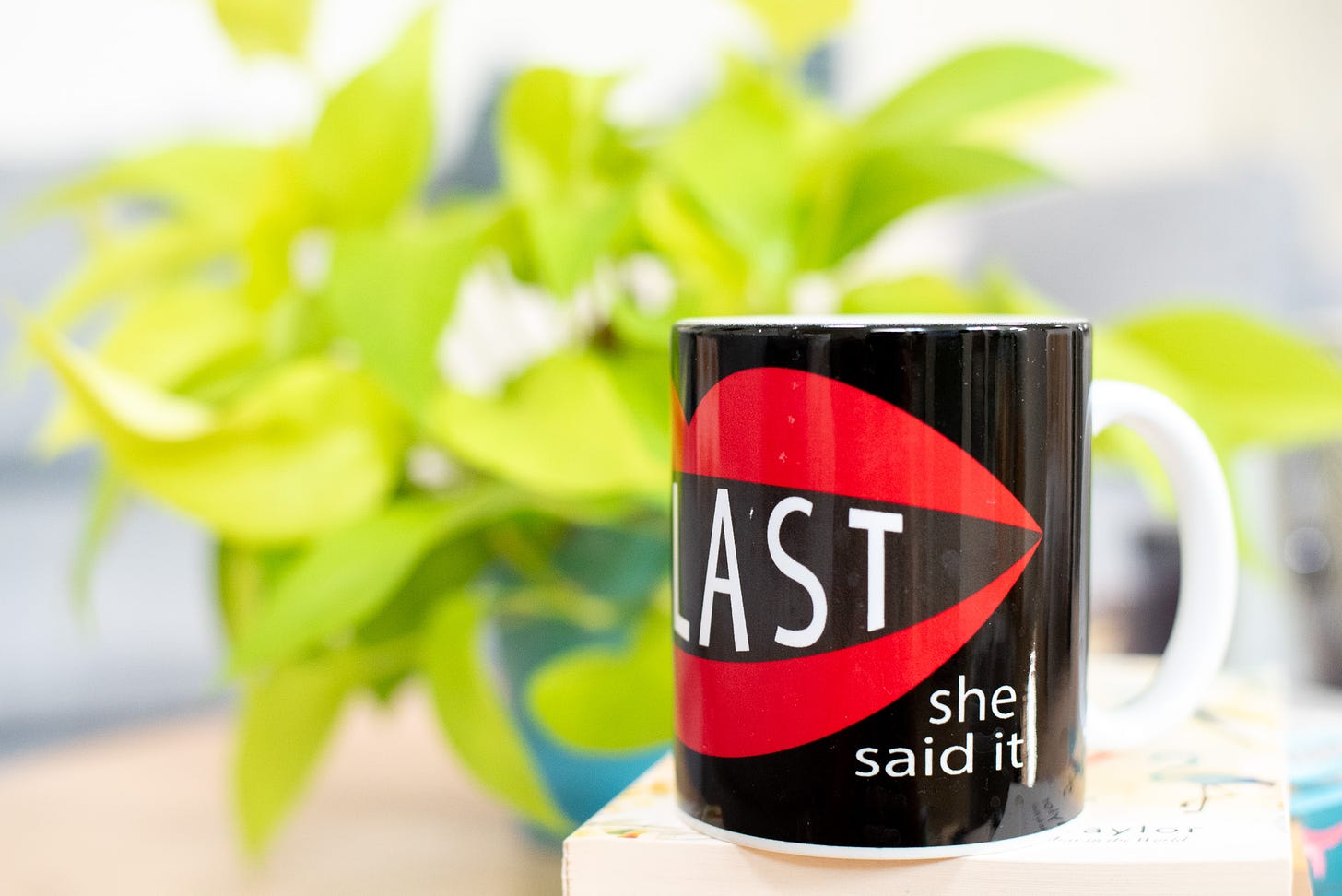

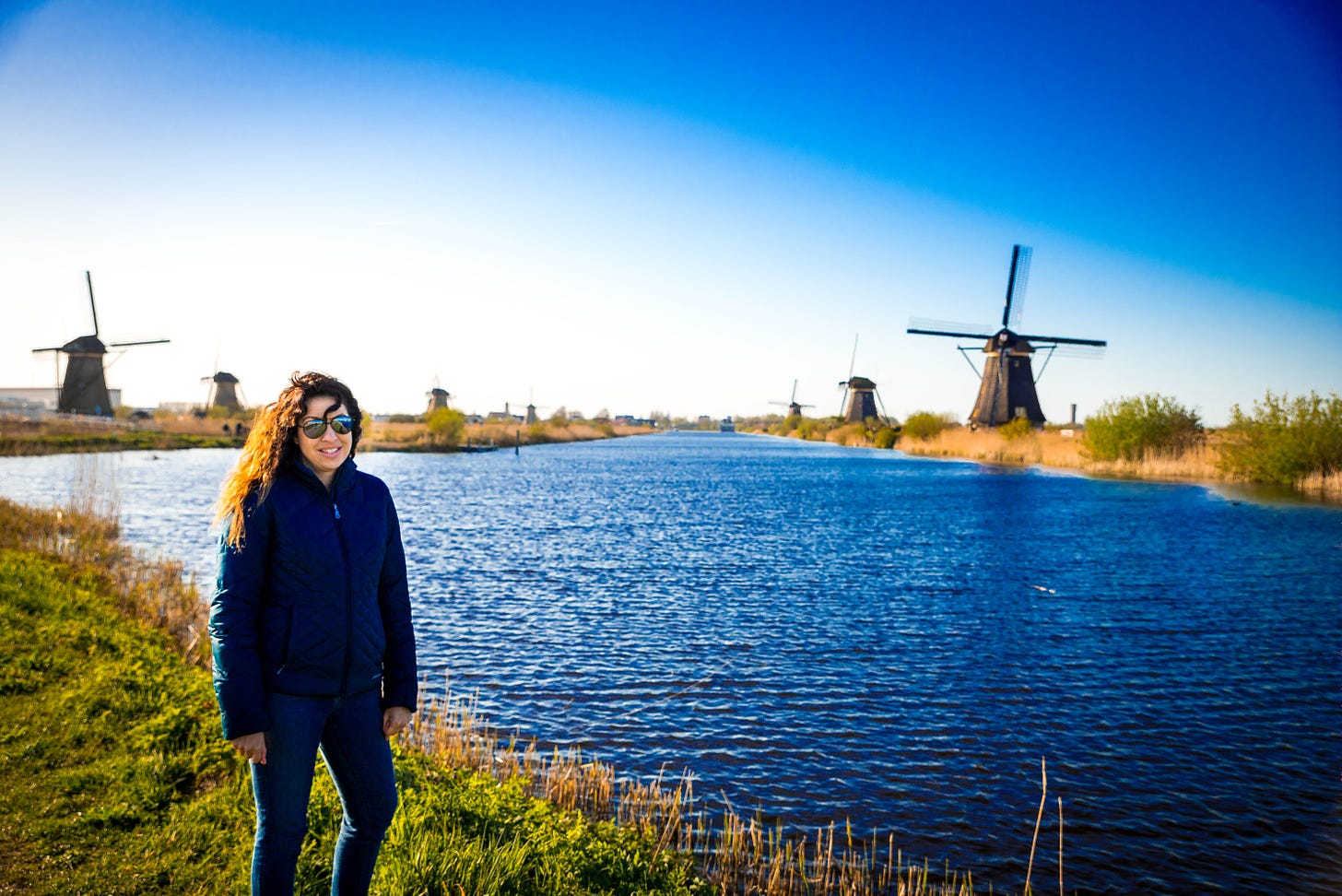
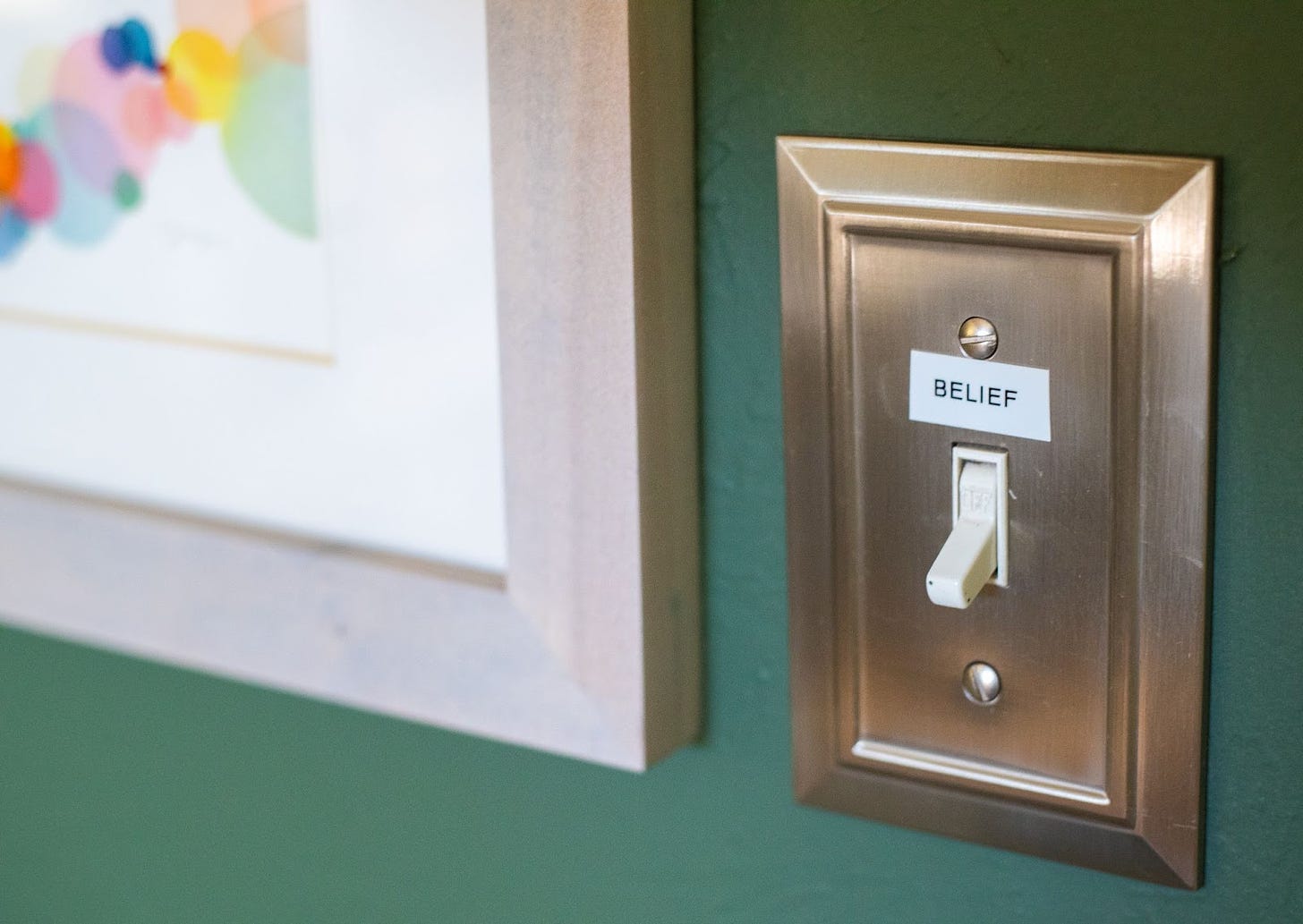

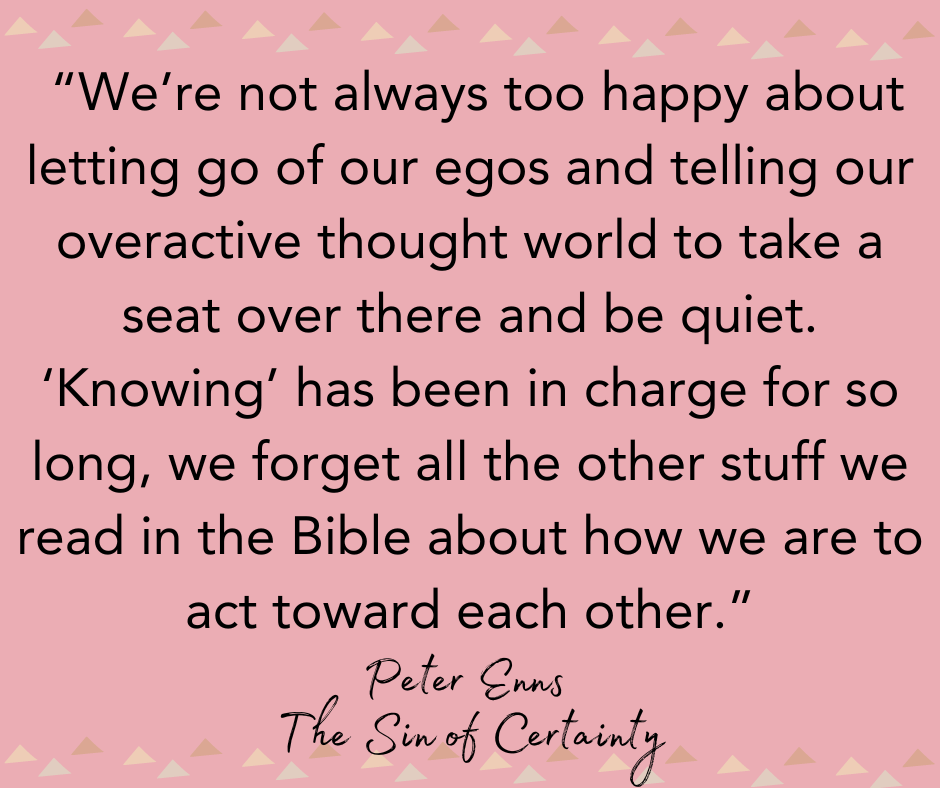

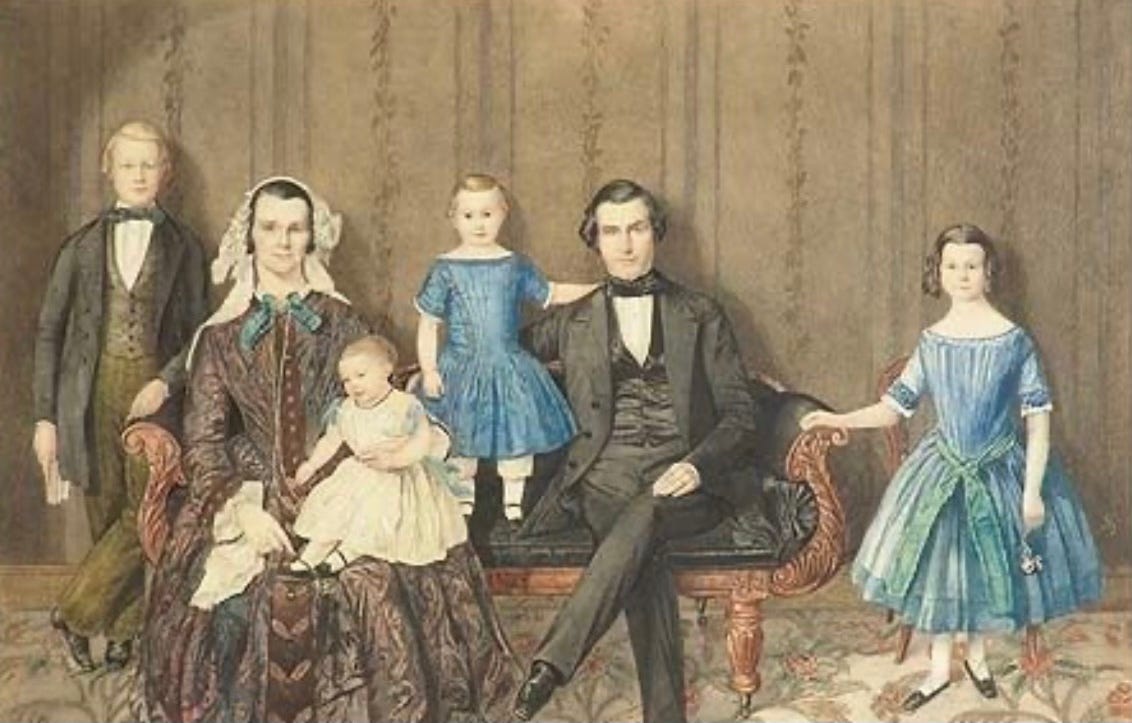
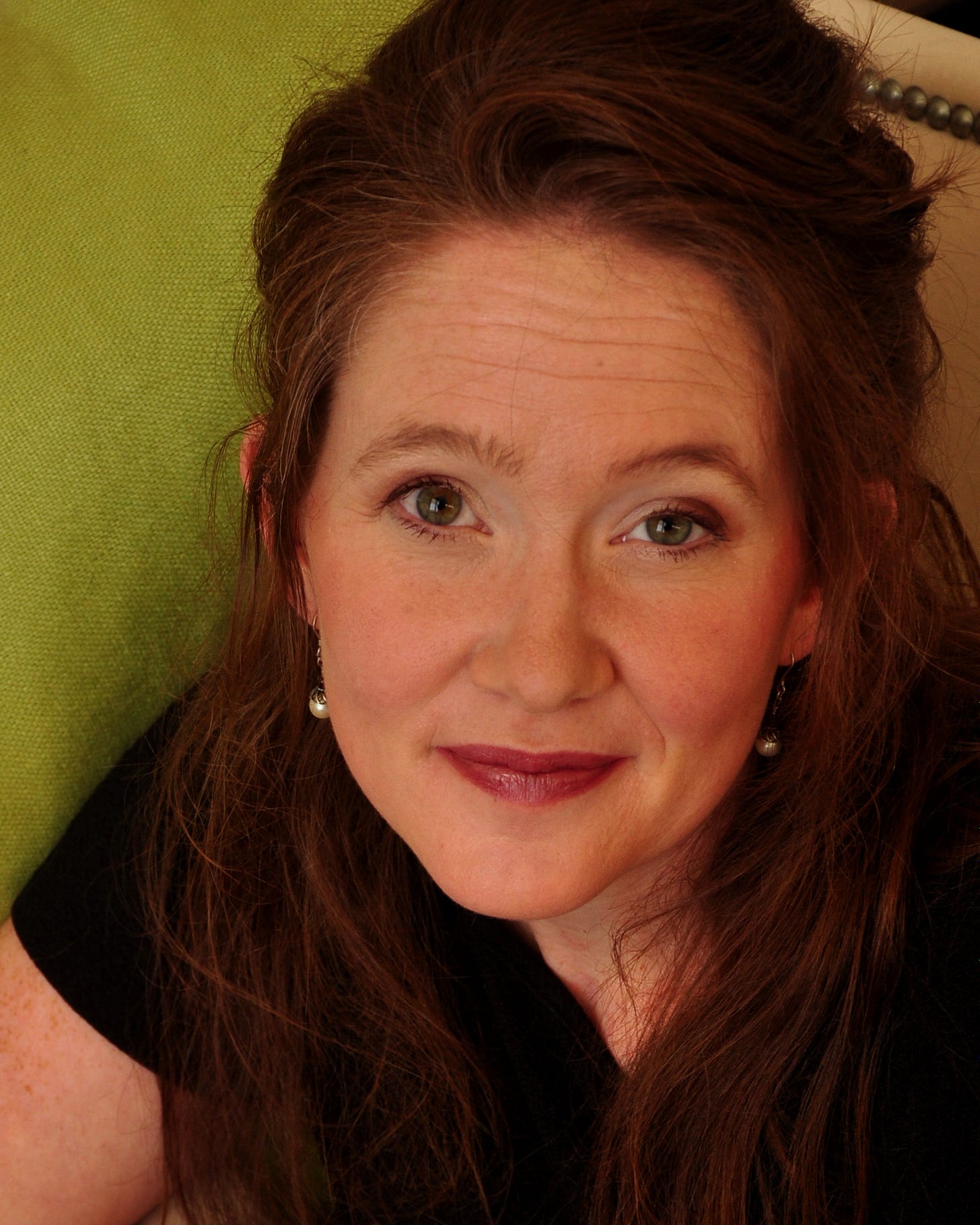

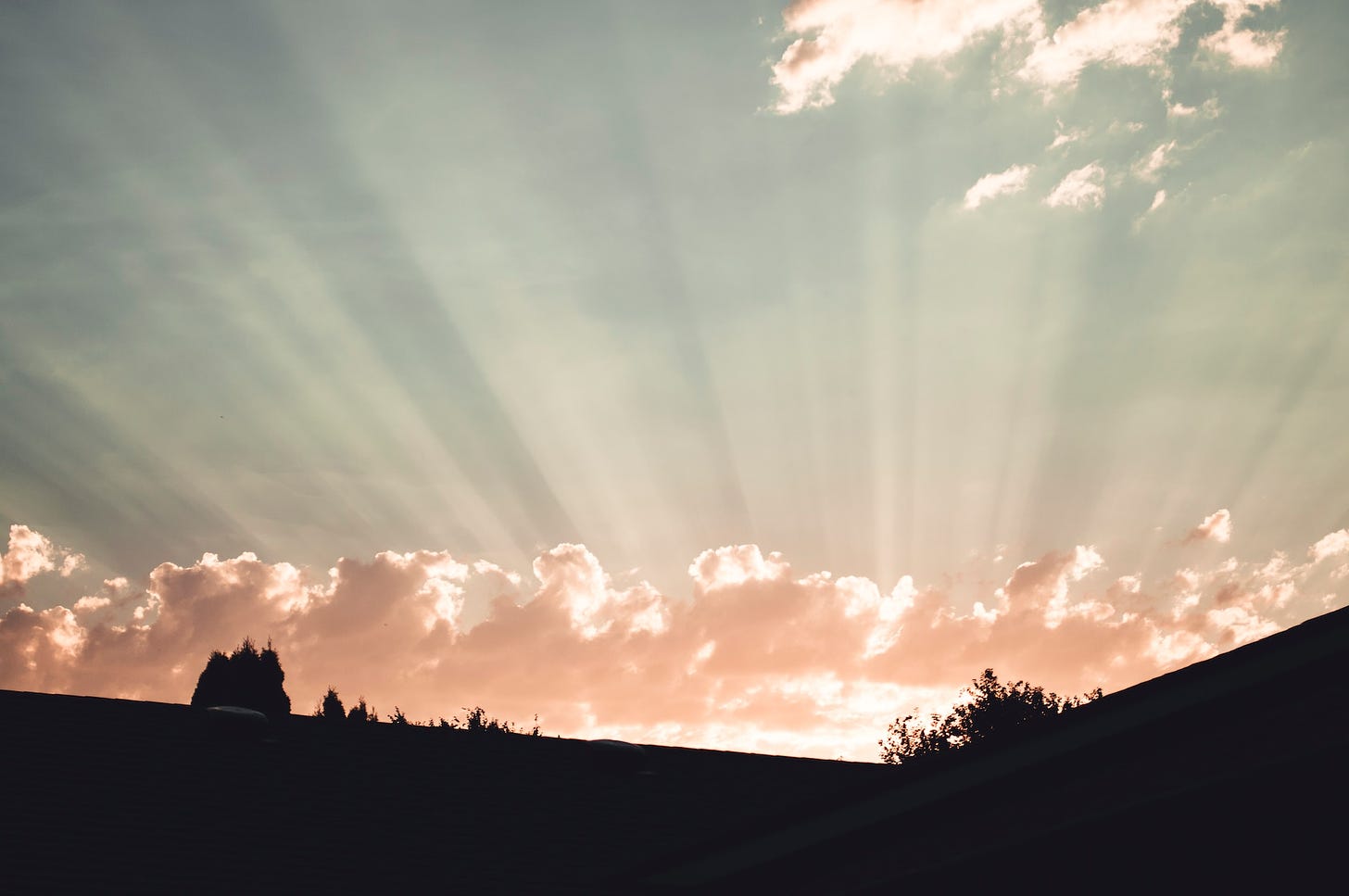
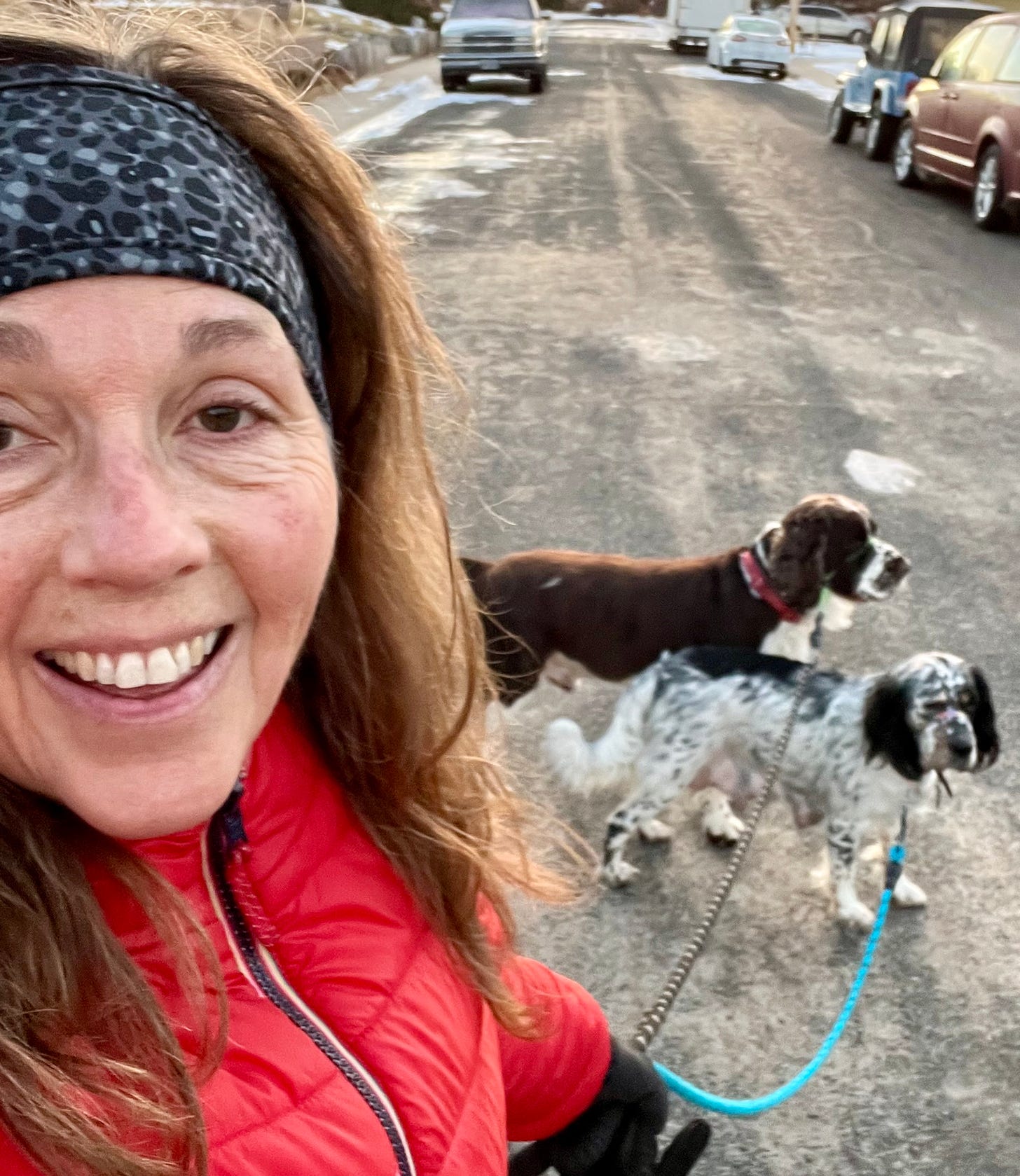

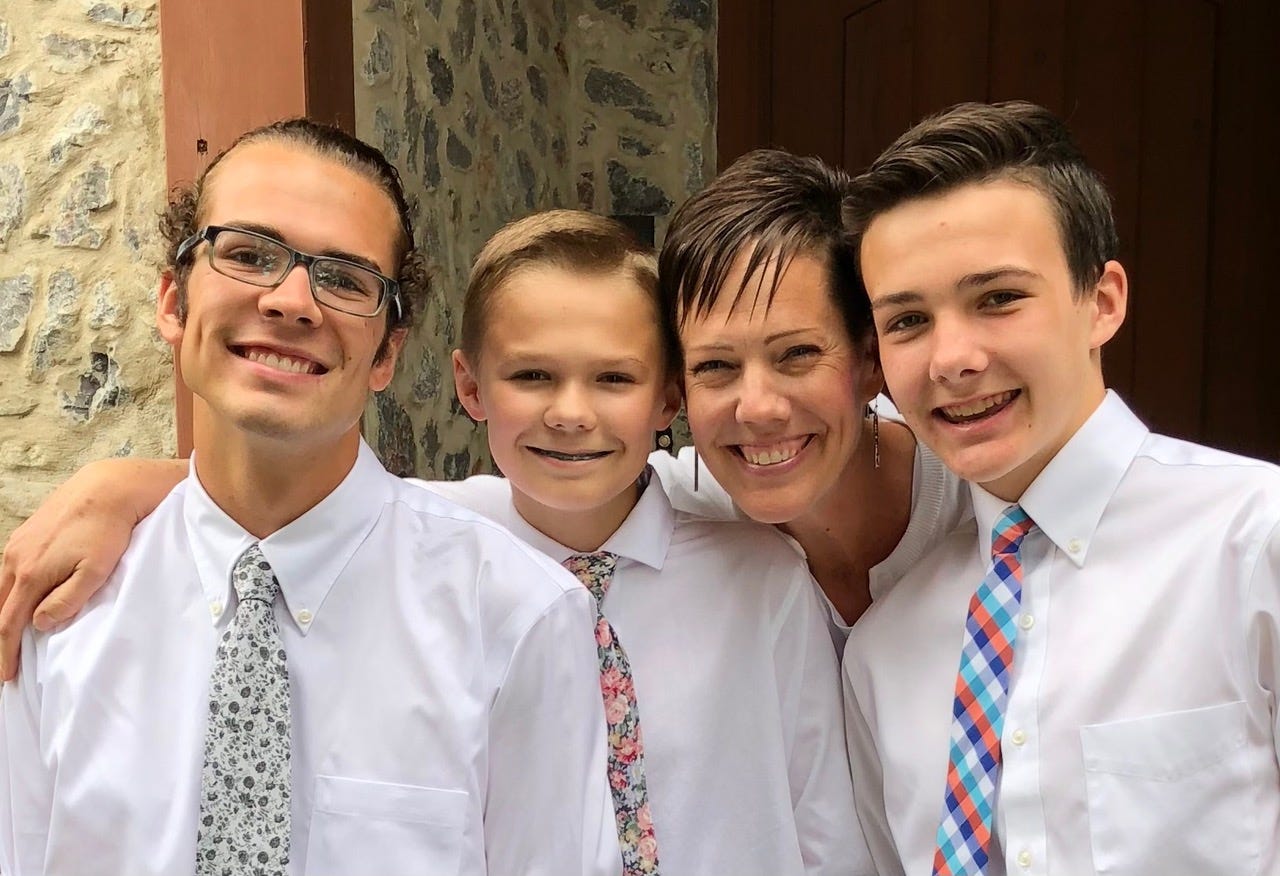
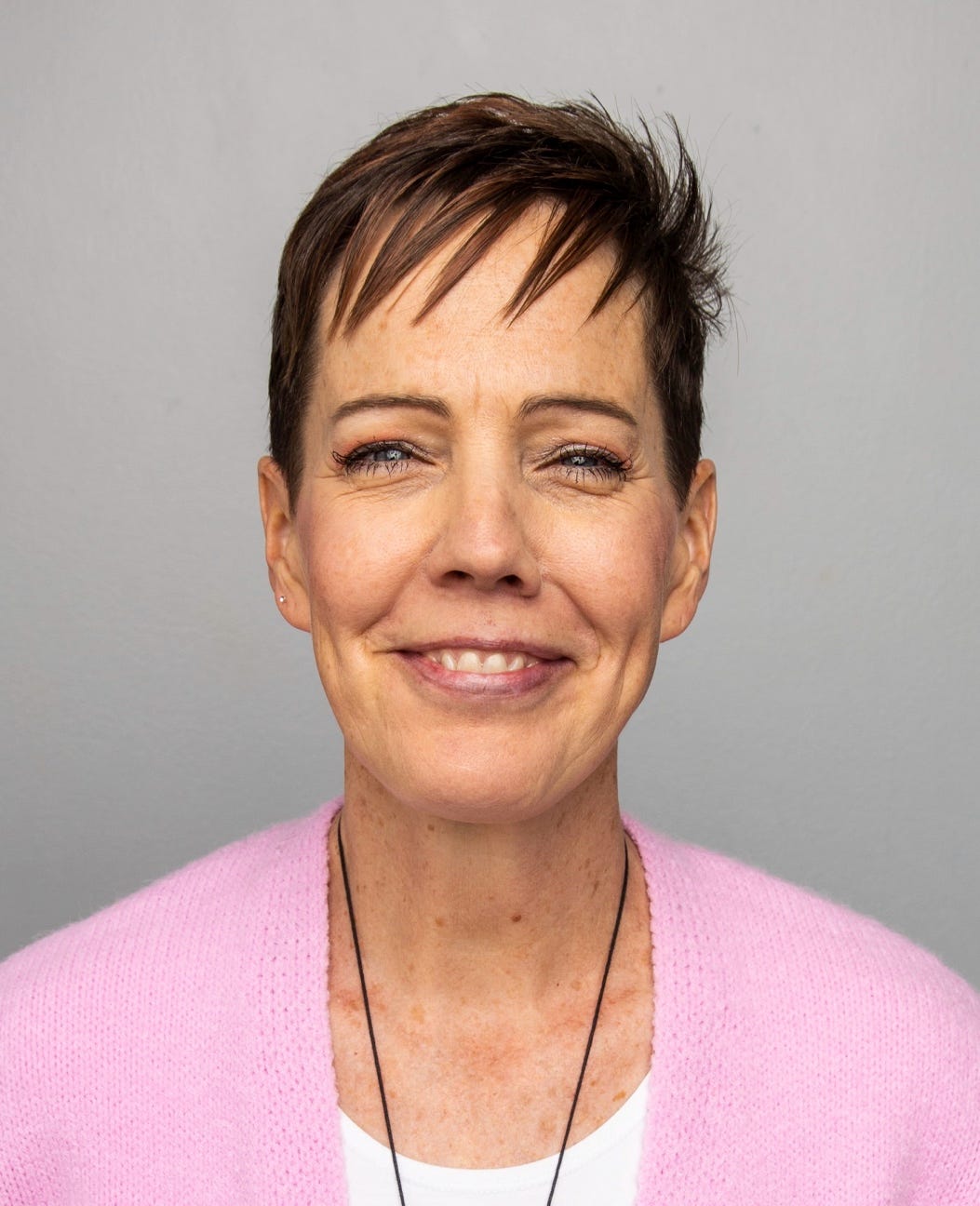

Wonderful!
Thank you Emily (Mrs. Wadley!). I loved your piece and have thought about it a lot since reading it. I also loved hearing you read it in the latest podcast episode. I have similarly felt pulled to examining each of my polygamous wife ancestors. I also found myself typing each of them into a Google doc, with little notes on each person. I want to go further and research each story individually when I have the energy and time to. It feels important that these women are known.